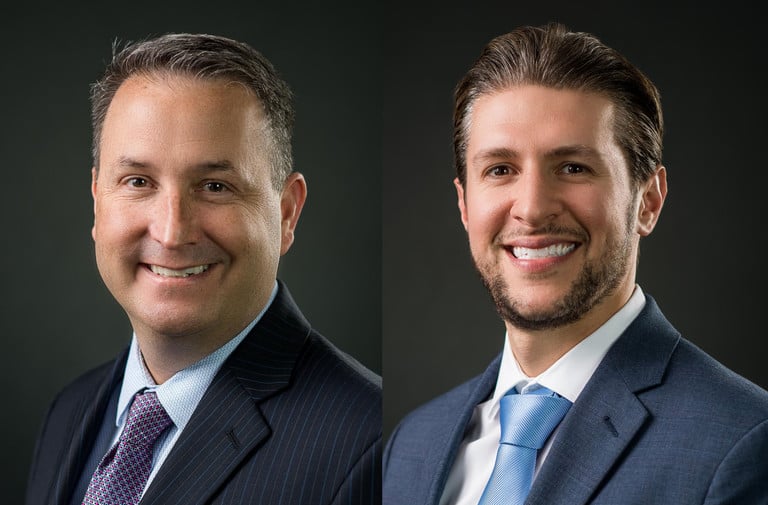Reporting to work should not be hazardous to your health, yet in the winter, simply showing up when weather conditions threaten can turn into a slip and fall accident that can have serious consequences. A slip and fall accident can cause painful and debilitating physical issues, but the financial burdens that come along with a serious injury can be every bit as consequential.
If you slip on ice or slick floors and suffer a fall at work, you should be able to collect Workers’ Compensation benefits. The benefits should help you address the costs of the medical care you require after your accident. They should also cover any lost income caused by your inability to work while recovering.
These benefits are meant to help get an injured worker back on their feet both physically and financially.
However, some slip and fall accidents that happen to workers are disputed, denying the coverage needed to address the implications of a serious work accident. If your work-related slip and fall claim is denied, you might want to talk to an experienced Workers’ Compensation lawyer to learn how a claim denial can be appealed, what evidence can be used to support your claim, and what other options exist for recovering damages caused by your accident.
How Common Are Slip and Fall Accidents in the Workplace?
Data compiled by the National Safety Council shows that about one-third of all work-related injuries are caused by slip and fall or trip and fall accidents. During wet winter months, obstacles such as icy sidewalks and slippery entryways create specific dangers that put workers at additional risk of serious injury.
What Are Common Winter-Related Workplace Slip and Fall Injuries?
Slipping on ice or snow can cause a number of injuries that can range from bumps and bruises to severe head trauma. Some of the injuries suffered in winter slip and fall accidents include:
- Bruises
- Cuts and scrapes
- Muscle strains and sprains
- Torn ligaments or tendons
- Broken or fractured bones
- Concussions
- Back and neck injuries
- Brain injuries
What Unsafe Conditions Often Lead to Winter Slip and Fall Accidents?
Employers have a duty to provide a safe work environment. Part of that has to do with protection from winter accidents such as slipping and falling on ice and snow while on the job. Some of the conditions that may lead to such an accident include:
- Inefficient or non-existent snow or ice removal
- Unattended pavement cracks that cause water to collect and turn into ice
- Poorly lit walkways or parking lots
- Missing or defective handrails
- Indoor flooring that becomes wet near entrances
How Can a Winter Slip and Fall Accident at Work Qualify for Workers’ Compensation?
A work accident makes an employee eligible for Workers’ Compensation if their accident happened on work grounds or while they are engaged in work activities. The injuries sustained in the accident should be eligible for coverage even if the injury occurred off company property as long as the employee was performing work that fell within the scope of their employment. For example, a worker going to their car to make a delivery or on their way to an off-site meeting would be eligible for benefits, but a worker who was heading home after a day at the office may not be.
What Might Complicate Eligibility for Workers’ Compensation Benefits?
If you were hurt on your way into work or when you were leaving at the end of the day, you may not be eligible for coverage under your employer’s Workers’ Compensation unless you were still on company property. If your employer owns the parking lot or has some type of control over the keeping of the property, you may be able to successfully claim benefits. Even if the property is leased, the argument could be made that the employer had a responsibility to keep the area safe.
If the property is clearly the responsibility of someone other than your employer, you may be able to pursue a personal injury case against a negligent third party to recover your losses after a slip and fall accident.
What Should I Know about a Third-Party Lawsuit?
Workers’ Compensation provides benefits for hurt workers as well as protections for the employer. In recovering benefits from a Workers’ Compensation claim, workers need not prove negligence to qualify. Workers’ Compensation is not based on negligence. However, in accepting benefits, the worker gives up their rights to sue their employer for any negligence that may have existed.
By contrast, a third-party lawsuit identifies a different source for the negligence that caused the accident. A successful third-party lawsuit will require that you prove that negligence existed on the part of the defendant and that the negligence led to your injuries.
What Should I Do to Preserve My Right to Collect Workers’ Compensation?
If you are hurt at work or on work grounds, you should notify your employer as soon as is feasible. You should secure any relevant evidence to prove what happened, including photos of the accident site, statements from witnesses, and records of your injuries including photo documentation of any bruising or visible bodily harm. Be sure to file a Workers’ Compensation claim within the window allowed by the statute of limitations, which in most states is within two years of the accident.
New Jersey Workers’ Compensation Lawyers at Kotlar, Hernandez & Cohen, LLC Assist Hurt Workers after Workplace Slip and Fall Accidents
If you fell at work and were injured, you should be able to collect compensation to cover your medical costs as well as any lost wages you incurred while recovering. The New Jersey Workers’ Compensation lawyers at Kotlar, Hernandez & Cohen, LLC can walk you through the process of filing your claim or appealing if your claim is denied. We can also help with a third-party lawsuit if negligence on the part of someone other than your employer is at play. Call us at 856-751-7676 or contact us online for a free consultation. Our offices are in Mount Laurel, Cherry Hill, Trenton, and Vineland, New Jersey; and Trevose, Pennsylvania. We serve clients throughout New Jersey and Pennsylvania.





